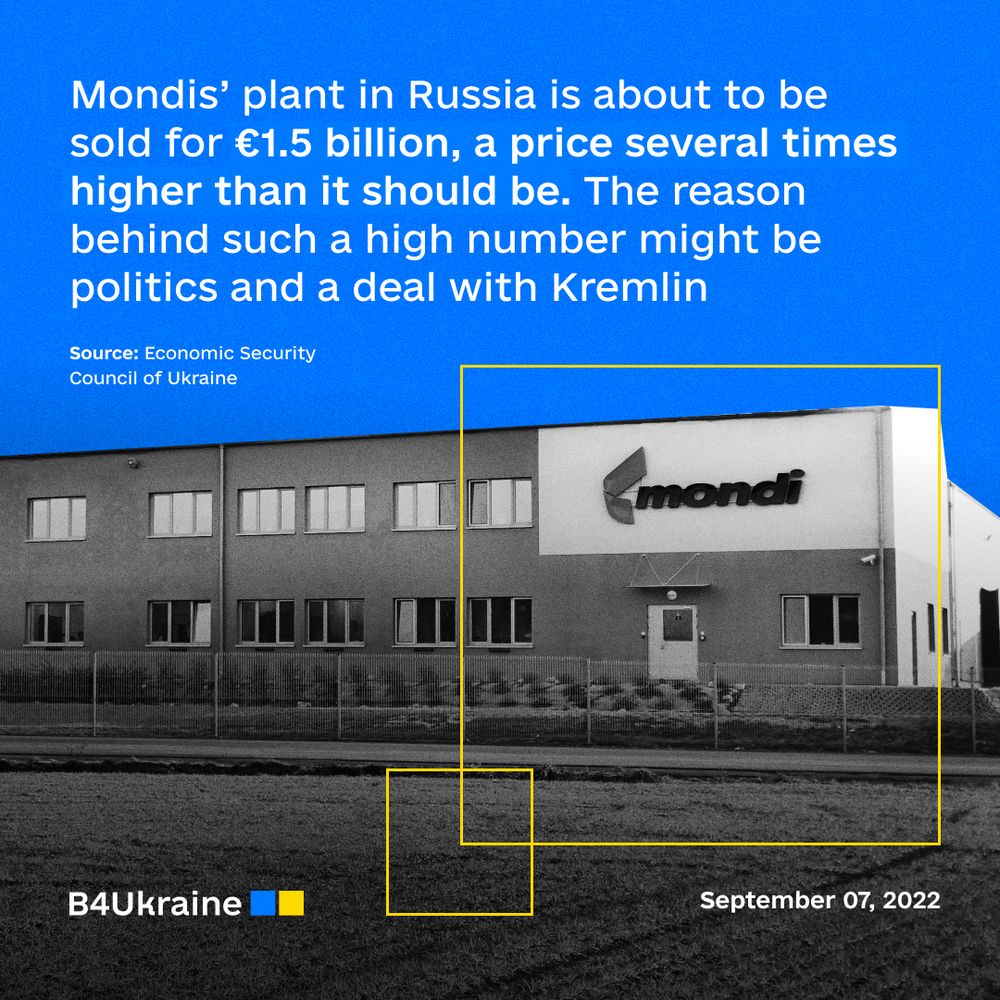
British packaging company Mondi is about to sell its Russian factory for 95 billion rubles (around €1.5 billion or $1.6 billion). Does it sound like a part of a corporate exodus that has been happening since Russia’s full-scale invasion of Ukraine on February 24th? Well, it seems like this case is different and not in a good way.
When Swedish TetraPack withdrew from the Russian market, it was Mondi who stepped up and saved the Russian packaging market from collapse.
Also, when declaring the decision to sell its assets in Russia, Mondi announced that one of the company’s Russian assets, the factory in Syktyvkar, is planned to be sold to Augment Investments Limited for €1.5 billion. However, in 2021, Mondi reported that all its assets in Russia - that is, four factories - are valued at €687 million.
How is this possible? Experts of the Economic Security Council of Ukraine (ESCU), one of the Business for Ukraine members, argue that the reason behind such a high price is political.
In general, the deal on the sale of the Syktyvkar plant was not supposed to take place at all for several reasons. Earlier, the Russian government had put in place several restrictions that would make a deal like this impossible, especially with the high price. First, in July, it banned all agreements on the sale of assets of companies connected to the military-industrial complex, as well as raw materials production. Secondly, it requires the selling company to obtain the government’s consent and provide a discount of at least 50% of the last market value of the asset.
However, for some reason, Russians allowed Mondi not only to sell its plant without a 50% discount but also to value it at a considerable sum that exceeds the entire capitalization of Mondi’s assets in Russia by almost three times.
The ESCU believes that the reason behind such a wonder is a deal with the Kremlin: “The company can receive such an overpayment for the asset only under the condition that the factory in Syktyvkar will continue to work and provide the Russian economy with products. The stability of food prices and the rise of social tension - this is what Putin worries about and why he agrees to pay Mondi through businessmen close to the government.”
The explanation is reinforced by the fact that the reported buyer of Mondi’s factory - Augment Investments Limited - is controlled by the Russian oligarch Viktor Kharitonin, who is closely connected with the Kremlin, namely with the minister of industry and trade of the Russian Federation Denis Manturov, with whom he shares a long history of business relationships. Minister Manturov is known for the fact that he, in Putin’s vertical, is in charge of parallel imports.
By striking such a deal Mondi can save its reputation, at least on paper, while the Kremlin can get what it wants. But this, of course, has nothing to do with ethics or values - it is all about getting more profits.